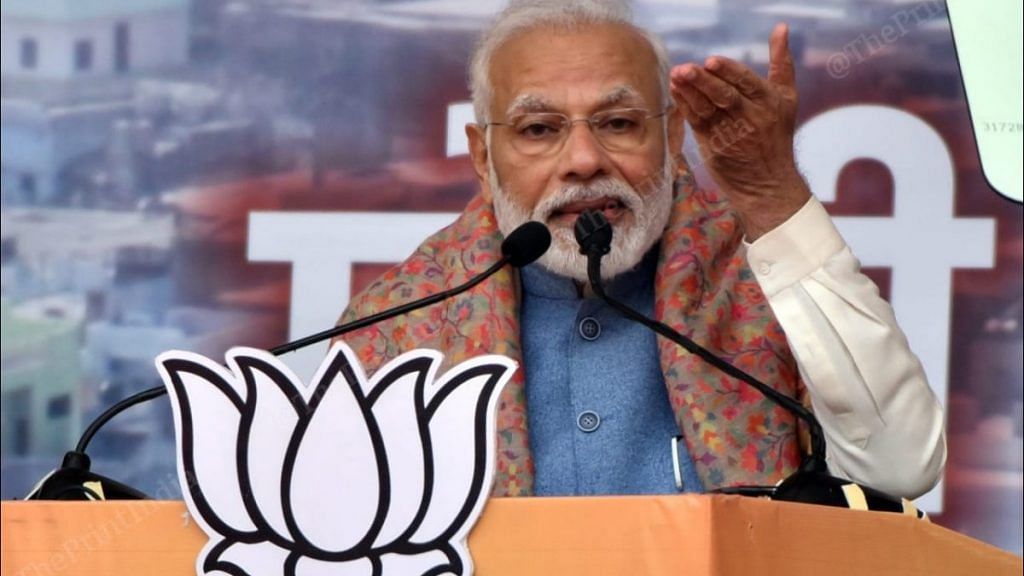It’s The Economist, stupid.
India slipping ten places to 51st position in the Economist Intelligence Unit’s Democracy Index is the new whip in the hands of detractors of Prime Minister Narendra Modi. Usually, the news would hardly make it to even the inside pages of a barely known newspaper. But these are unusual times as is clear from the coverage this news has received. According to the report, India’s overall ‘democracy’ score fell from 7.23 in 2018 to 6.9 in 2019, whatever that means and however that is calculated.
The Economist Intelligence Unit (EIU)’s Democracy Index 2019 is reported to be based on five categories — electoral process and pluralism, functioning of government, political participation, political culture, and civil liberties.
An important trend in the modern global business strategy is to analyse the political decision-making process in different countries to ascertain the extent of risk exposure for investments. The return on investment becomes less important, or at least not as significant a concern as exposure to risk, in the real world of investments.
Also read: Economist, Soros: Has Hindu nationalism increased global criticism of India or bad economy?
Opportunities beyond democracies
Perhaps this is why the world’s major economies have been heavily investing in countries that are less democratic than those with long democratic traditions and collective decision making culture, like in India. The moneybags of the West have found it comfortable to deal with dictators and despots in underdeveloped countries. A nation like China, which cannot boast of having the best of democratic traditions, has been the major recipient of investments from the developed world and institutions patronised by them.
The logic behind choosing authoritarian states over democracies as preferred investment destinations is that the former have a less complicated mechanism, or without multiple layers, of decision-making, which facilitates direct contact with the top leadership. This guarantees exclusive business opportunities and greater flexibility without bothering about rules, regulations, ethics, and established business norms.
In this background, pontificating about the virtues of democracy for greater business and investment opportunities sounds jarring. India has always prided itself on upholding democratic traditions and strong institutional framework in domestic dealings as well as international business engagements. This fact has been mentioned and appreciated by the United Nations (UN) and other agencies of repute and respect.
Also read: Economy, diplomacy, democracy — Why 2020 is harder to predict than 2019
An ‘expert’ Economist
Unlike reports by UN agencies and standard research institutions and universities, The Economist is a political journal, which reports and comments on current topics. The publication has every right to take sides and not be completely unbiased in its reports and editorial comments.
The Economist is believed to have conducted a survey of the Indian political scene to assess the current situation under the Modi government. The Economist must be a truly global expert on conducting surveys with a frugal staff, and that too on five very broad categories, at the quickest possible time.
The report authoritatively confirms that “many of the 200 million Muslims do not have papers to prove they are Indian”. Needless to say, The Economist team must have surely met about 200 million Muslims. Alternatively, it may have engaged the services of some expert survey agency that we don’t know of. Either way, the Modi government can probably make use of The Economist when it conducts its own exercise for the National Population Register (NPR).
Also read: Indian democracy’s big contradiction – Dalits cherish Constitution, privileged want a rethink
The only way out
After a flawed democracy index, The Economist followed it up with its cover story article ‘Intolerant India’ under the Modi government. It basically ridicules the parliamentary form of government, getting 37 per cent votes under a ‘first past the post’ system by claiming that the ruling authority is determined to ‘transform India from a tolerant multi religious place into a chauvinistic Hindu state’. The best that the journal could do at this point is apologise for this travesty of truth, pull the article down, recall all the copies, and save itself the ignominy of displaying that it suffers from foot-in-the-mouth syndrome.
And all along our children were taught in schools about India having inherited this democracy from Britain, the country of origin of The Economist.
The Economist has indulged not only in crass misreporting but also in belittling its own standards of ethics in journalism and claims of non-partisan reporting. It has largely economised on truth and thrown all ethics and journalistic standards to wind.
History repeats. Katherine Mayo’s highly scurrilous book Mother India (1927) was dismissed by Mahatma Gandhi as a “report of a drain inspector”. The Economist Intelligence Unit’s report and the article deserve the same treatment.
The author is a member of the National Executive Committee of the BJP and former editor of Organiser. Views are personal.
